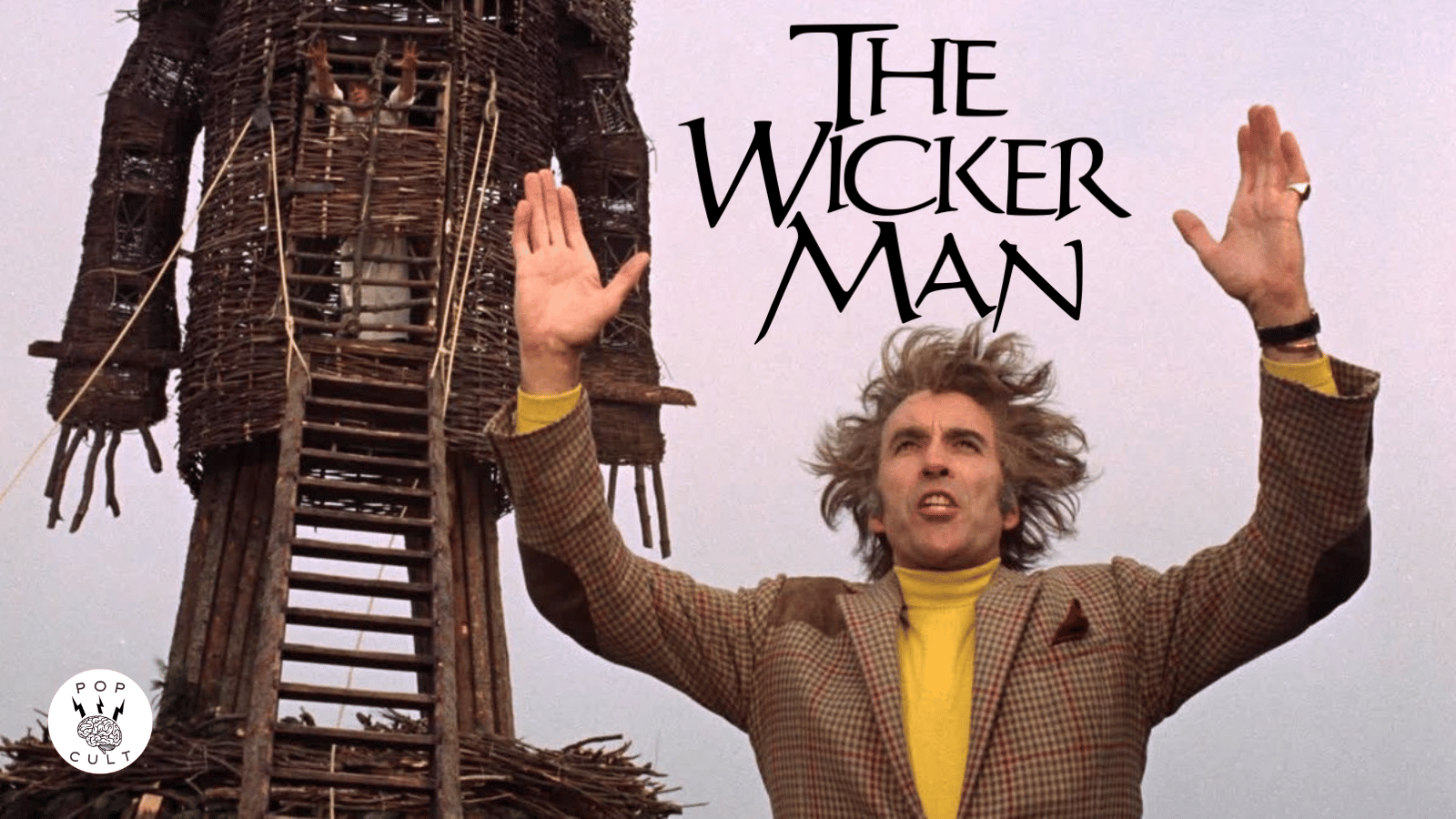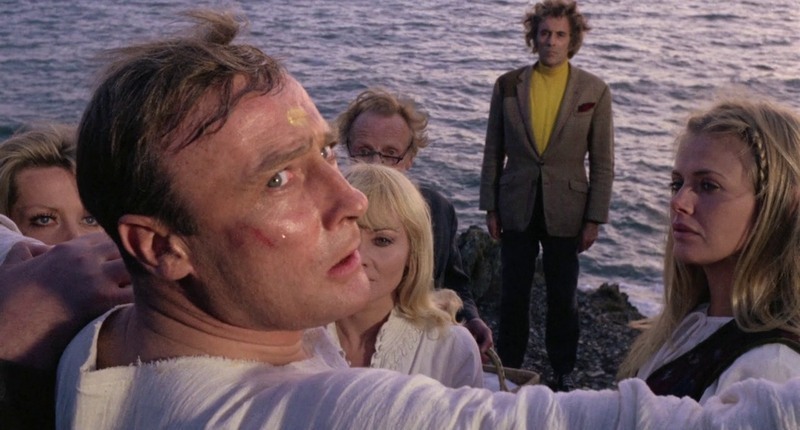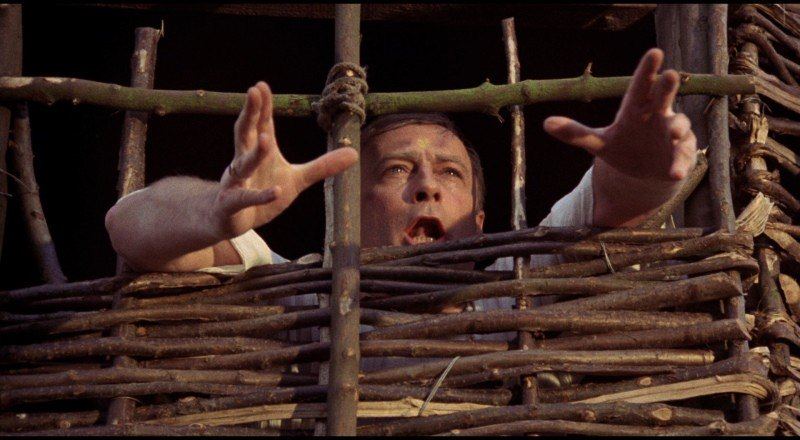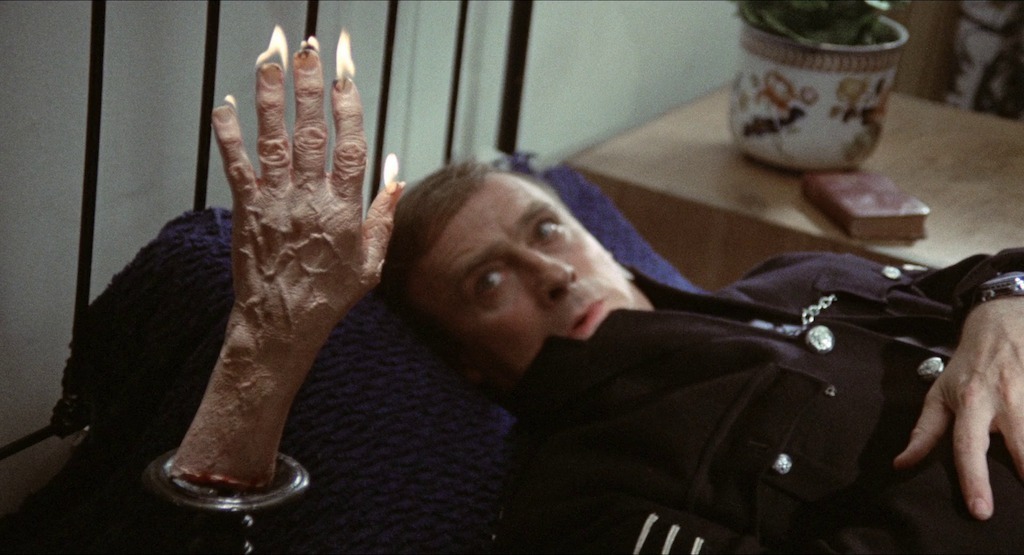The Wicker Man (1973)

The Wicker Man (1973) is a British folk horror film directed by Robin Hardy, featuring a strong cast that includes Edward Woodward, Britt Ekland, Diane Cilento, Ingrid Pitt, and Christopher Lee. Based on the 1967 novel Ritual by David Pinner, the film has become a cult classic due to its chilling atmosphere and unique blend of horror with ancient pagan rituals.
The film follows Sergeant Neil Howie (Edward Woodward), a devout Christian police officer, who is sent to the remote island of Summerisle to investigate the disappearance of a young girl named Rowan Morrison. Upon arriving, Howie is struck by the islanders’ strange behavior and their unusual customs, which seem to be rooted in pagan beliefs. The islanders, led by the charismatic Lord Summerisle (Christopher Lee), openly practice rituals that center around fertility and nature. Howie, who believes in the power of his Christian faith, finds himself in conflict with the islanders’ pagan traditions, leading to a growing sense of unease as the investigation unfolds.
One of the film’s strengths is its slow-burn tension. The horror doesn’t come from the usual jump scares or violent imagery, but from the eerie, unsettling atmosphere. As Howie digs deeper into the mystery, the audience is gradually drawn into the island’s strange world. The film explores themes of belief, sacrifice, and the clash between modern Christianity and ancient traditions. Howie’s unwavering faith is contrasted with the islanders’ belief in the power of nature and the cycles of life, creating a sense of impending doom as Howie becomes more entangled in their rituals.

The performances in The Wicker Man are also memorable. Edward Woodward’s portrayal of Sergeant Howie is both stern and vulnerable, making his eventual fate all the more tragic. Christopher Lee, known for his iconic roles in horror films, plays Lord Summerisle with a calm, almost charming demeanor, which only adds to the sinister nature of his character. The contrast between Howie’s morality and Lord Summerisle’s pragmatism creates a compelling dynamic that drives the narrative forward.

The film’s music, composed by Paul Giovanni, plays a vital role in building the unsettling atmosphere. The folk songs sung by the islanders add to the sense of mystery and foreboding, while the eerie melodies heighten the tension as the film builds toward its shocking climax. The Wicker Man itself, a large effigy made of branches, serves as the film’s terrifying symbol, representing the islanders’ commitment to their pagan rituals.

In conclusion, The Wicker Man is a masterpiece of folk horror that blends psychological tension, supernatural elements, and a thought-provoking exploration of belief systems. The film’s slow pacing, memorable performances, and haunting music all contribute to its lasting impact. It remains one of the most unsettling horror films ever made, and its influence can still be seen in modern horror cinema.











